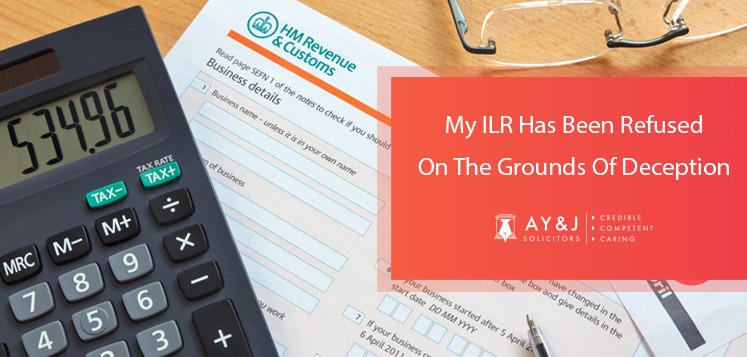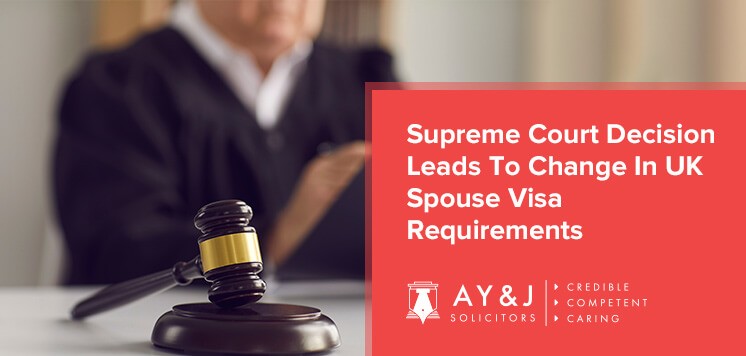Disclaimer: The information in this blog is accurate as of its publication date. Any updates after that date are not reflected here.
The situation involving Educational Testing Services and Test of English for International Communication (ETS-TOEIC) holders in the UK is an important reminder that Home Office can act in error, and must be challenged when necessary. The TOEIC is a certification process that has been used since 1979 to verify proficiency in the English language. However, when the Home Office heard that students had committed fraud in the process of taking the test, they issued a blanket rejection of test submissions for an unknown number of students.
Table of Contents
What is the background to the ETS-TOEIC scandal?
To obtain a Tier 4 Student Visa, applicants from some countries must pass an English Language test. In 2014, BBC’s Panorama programme uncovered systematic fraud in the English language test system. Reporters uncovered instances in which candidates at two test centres were replaced by fake exam sitters and prospective student visa applicants had the answers to the test read to them.
It was alleged that the prospective students who used the centres promised a “guaranteed pass” for £500; about three times the official exam fee.
In December 2016, nine people were convicted of running the fraudulent scheme. It is estimated around 1,000 candidates passed the exam using deceitful methods.
Following the Panorama programme, the Home Office, led at the time by now Prime Minister, Theresa May, stopped accepting TOEIC pass certificates for visa applications, and launched a nationwide investigation.
As a result, around 48,000 students already studying in the UK on Tier 4 Student Visas were unexpectedly issued with “Removal Directions” requiring them to leave their studies, and the UK. Around 70% of the students affected were Indian nationals. Mrs May also revoked the Sponsorship Licence of around 60 Higher Educational Institutes.
How was the ruling on deporting the students following the ETS-TOEIC scandal challenged?
The lawfulness of the decision to deport tens of thousands of students was immediately challenged. The Upper Tribunal (Immigration and Asylum Chamber) in SM and another v Secretary of State for the Home Department ruled that the then Home Secretary had unlawfully deported the students on hearsay evidence.
It was stated in the ruling that the Secretary of State failed to reasonably communicate with ETS prior to the TOEIC fraud discovery, showed “manifest” shortcomings in the process, and relied on unqualified and uncorroborated information from the ETS when she made her decision to deport the students. The president of the Upper Tribunal said: “Almost remarkably, ETS provided no evidence, directly or indirectly, to this tribunal,”, something he found “mildly astonishing”.
The Tribunal held: “Apart from the limited hearsay evidence there was no evidence from the protagonist in this saga, the ETS organisation. The Secretary of State has not discharged the legal burden of establishing that either appellant procured his English language certificate by dishonesty.”
Following the Upper Tribunal’s ruling, an investigation into the Secretary of State’s actions was demanded, and many of the students who had their lives disrupted are bringing claims for compensation against the Home Office.
In addition, in December 2017, the Court of Appeal held in Ahsan v Secretary of State for the Home Department (Rev 1) that people who were accused of cheating on the TOEIC test had the right to have their appeal heard in the UK, rather than have to bring a case from overseas.
Lord Justice Underhill said that:
“an out-of-country appeal would not satisfy the Appellants’ rights, either at common law or under article 8 of the Convention, to a fair and effective procedure to challenge the decisions to remove them; and that in those circumstances, subject to the human rights claim issue considered below, they were entitled to proceed with such a challenge by way of judicial review”.
What is the impact of the ETS-TOEIC scandal on ILR applications?
Much Indefinite Leave to Remain (ILR) applications are refused. One of the most common reasons is when UK Visas and Immigration (UKVI) accuses applicants of deception when submitting their ILR application.
A false representation, which can lead to a refusal of an ILR application under paragraph 322(1A), 322(2) or 322(2A) of the Immigration Rules, refers to where the applicant or a third party “deliberately and dishonestly makes a false statement in relation to an application.”
Deception must include an element of deliberate dishonesty to lead to ILR being declined. For the majority of individuals who received a removal direction based on alleged fraud surrounding their ETS-TOEIC certificates, it is clear that there was no element of deliberate dishonesty, therefore, they can appeal a decision to deny ILR.
In addition, the decision in SM and another v Secretary of State for the Home Department held the Secretary of State for the Home Department acted unlawfully when sending Removal Directions out to tens of thousands of students, without having substantive evidence that each individual student had committed fraud on their TOEIC test. Again, this means any allegation of deception can be challenged by an applicant who is denied ILR based on circumstances surrounding the ETS-TOEIC scandal.
If you have been affected by the ETS-TOEIC scandal, it is imperative that you consult with an expert immigration solicitor as soon as possible. They can assist you to launch an appeal of any Removal Direction, or with challenging decisions based on the ETS-TOEIC ruling.
How A Y & J Solicitors can help you if your immigration status has been affected by the ETS-TOEIC scandal
Has the ruling on ETS-TOEIC impacted you? Are you concerned about your status in the UK? Has your ILR application been refused? We are here to help. As specialists in immigration law, we have assisted many people who have been subject to Removal Directions or had their application for ILR refused on the basis of deception.
A Y & J Solicitors provide expert legal immigration services in all aspects of UK immigration law. We will take the time to listen to your case and provide professional, robust advice and representation. Contact us today to ensure your status in the UK is secure.
Disclaimer: No material/information provided on this website should be construed as legal advice. Readers should seek an appropriate professional advice for their immigration matters.










